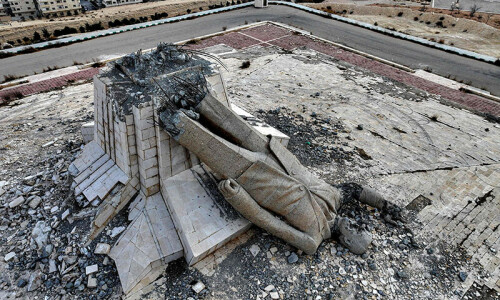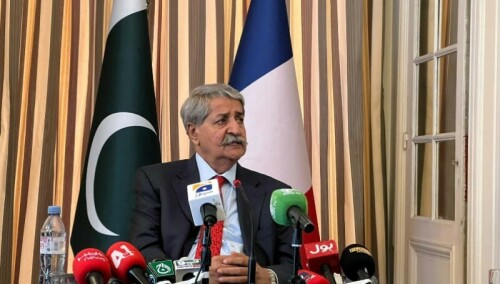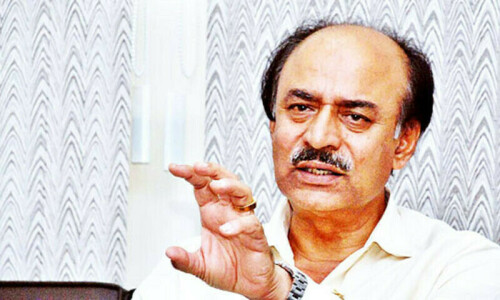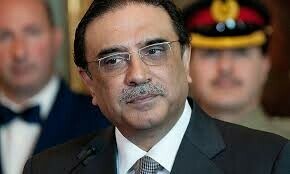HERE is a question posed in a proposed research thesis: was Nazir Akbarabadi a secular poet? And here is an apt reply to the question: is there any doubt about it?
In fact, the proposed research thesis forms part of a university’s research journal, Meyar. The university is International Islamic University, whose Urdu department brings out this journal. I should thank this department, more particularly Dr Rasheed Amjad, who is the editor of this journal, along with Dr Sadiya Tahir. The present issue, seventh in number, runs to 669 pages. It includes two sections devoted to the study of Iqbal and Rashid.
What in particular attracted my attention is an article in the form of a research paper designed by Dr Anwar Ahmad and Dr Rubeena Rafiq as a lesson/exercise for M.Phil/Ph.D students, titled, “A Hypothesis With Reference to Nazir Akbarabadi for Research”. Of course, it is a useful exercise for the benefit of research students. It attracted my attention because the exercise is with reference to Nazir.
Nazir, with his distinctive sensibility, is seen standing apart from all the poets of his time. The respected poets belonging to Delhi and Lucknow did not have a taste for the kind of poetry Nazir was writing. It was left for European scholars like Dr Fallon to recognise his genius.
Writing about him in the preface to the A New Hindustani English Dictionary, Fallon recognised him as “the only true Hindustani poet according to the European standard of true poetry”. He adds: “Nazir had a keen sympathy with nature and with every form of humanity, the only one with any bowels of compassion for the poor and unfortunate, the outcast and distressed, and the most abandoned of God’s creatures.”
His contribution to the Hindustani language can, according to Fallon, be compared with that of Chaucer’s and Shakespeare’s to English.
Nazir was truly a peoples’ poet, and as Fallon defined him, “he was greatly independent, original, philosophic, Catholic.” He freely moved among all kinds of people without caring for their caste, creed and class. Distinction on the basis of religion was the last thing he cared about.
Not that he was indifferent to religion. His naats and munqabats speak of his deep devotion to the Holy Prophet (PBUH) and to Hazrat Ali.
But he had respect for other religions too. He has written a series of poems in praise of Sri Krishna. In the first poem he celebrates his birthday, Janmashtami. In poems subsequent to this one he lovingly portrays him in different stages of life — Kanhiya as a child, Kanhiya as boy playing his bansri, his marriage.
Nazir has often been designated as a poet of festive celebrations. Festivals, religious as well as secular, had a special attraction for him. Of course, he feels happy while celebrating Eid and Shab-i-Barat. But perhaps because of their excessive festivity Holi and Janmashtami attract him the most. The display of gaiety on a grand scale, huge crowds of merry making people drenched in coloured water with red gulal coated on their faces, dancing and singing, is what thrills him most. So he is at his best when writing about Holi. He feels one of those celebrating and is seen going in a state of trance.
Nazir loves to move among the ‘common’ people, be they Hindus or Muslims. He likes to join them in their celebrations. And he feels distress at their distress. But in his poem “Aadmi Nama” he appears feeling one with the whole humanity. As a great humanist and a magnanimous soul he goes on enumerating all sorts of people, more particularly those who are wicked and vicious — the swindlers, pickpockets, thieves.
And he is accommodating to them all, pleading that after all they too are human.
This all-embracing attitude puts him on a plane where he appears a little more secular than a secularist. Employing our traditional phraseology we may call him a qalandar. Actually, he led the life of a qalandar, a care-free man with no worldly concerns disturbing his peace of mind. He was content with the meager income he earned from teaching children. This attitude toward life found expression in his poetry.
The outcome is a number of genuinely written poems which are a commentry on the worthlessness of worldly concerns.















































Dear visitor, the comments section is undergoing an overhaul and will return soon.